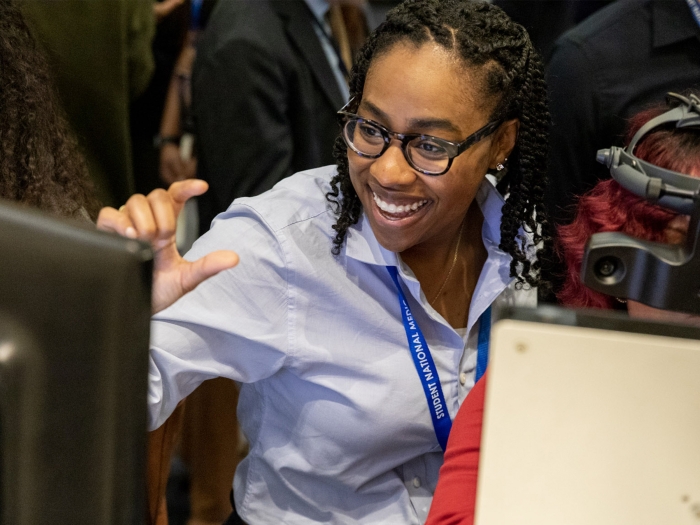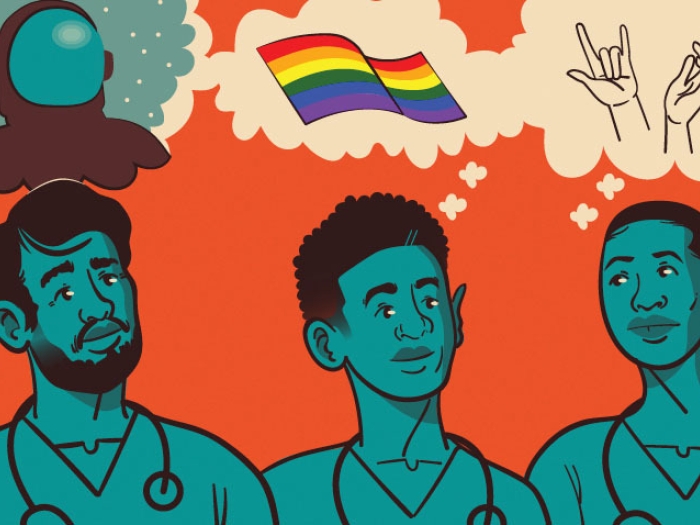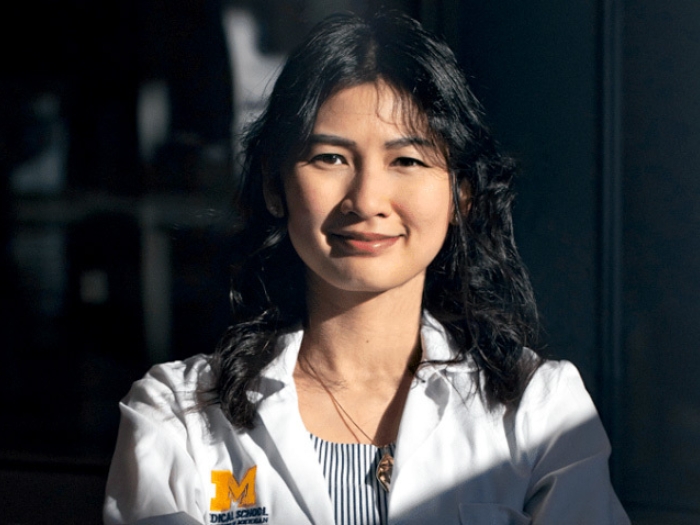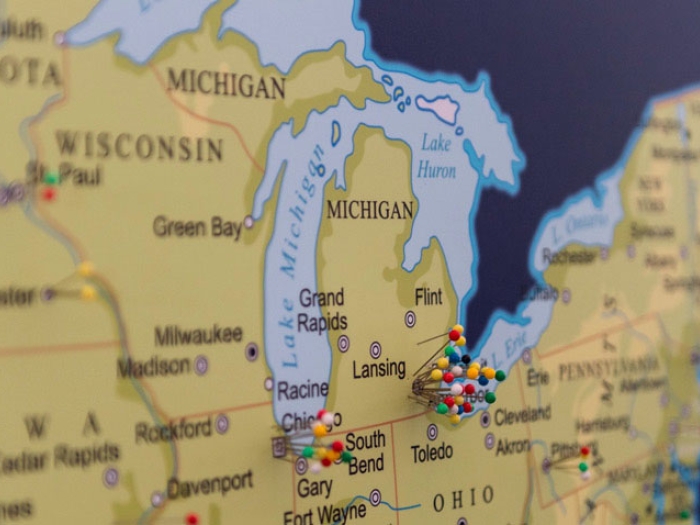Residency programs look at far more than grades and test scores. Newly matched Michigan Medical School M4s share tips to help an application stand out.
7:00 AM
Author |
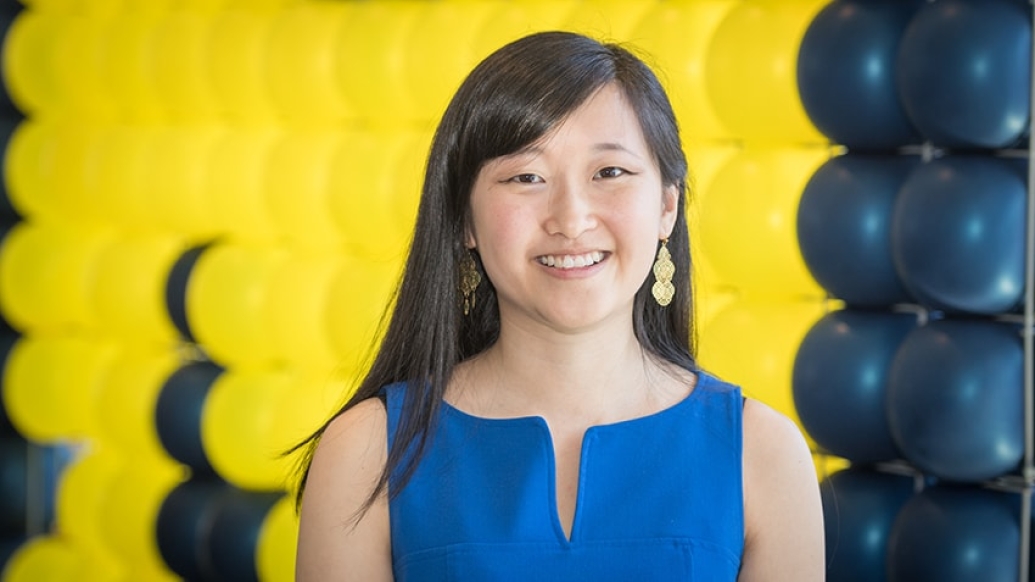
The arrival of Match Day marks the end of a long journey.
It also signals the start of a new one.
MORE FROM THE LAB: Subscribe to our weekly newsletter
On the third Friday of each March, most soon-to-be medical school graduates find out where they'll spend the next three to seven years in residency.
"It's like a calm chaos; the one point we've worked toward," says Vivian Chow, 28, a fourth-year student at the University of Michigan Medical School. "Overall, we're dealing with this sense of uncertainty — but everyone is also excited for what's ahead."
Chow, like most of her colleagues across the country, found out her placement during a celebratory ceremony last week (she matched with a pediatrics program at New York University).
And it won't be long before the next medical school class follows suit. Students complete the residency application process in September of their fourth and final year, but the task demands significant preparation long before that.
Students rank their top picks via the National Resident Matching Program, a private, nonprofit U.S. organization that uses the Electronic Residency Application Service (ERAS) to deliver the application and supporting documents (residency programs, likewise, respond with their preferred candidates).
A complex algorithm determines the results, which gives Match Day an air of mystery.
Still, there are strategies to help an applicant secure a solid match.
Based on their recent experiences, Chow and two U-M classmates shared advice for getting started:
Cast a wide net of potential options
Each specialty and program has varying levels of competitiveness and open slots, which means some students will submit more residency applications than others.
SEE ALSO: Doctors Who Specialize in Not Specializing: Key to Medicine's Future
"At the end of the day, it's a numbers game," says 27-year-old Phil Asamoah, who applied to 48 radiology residency programs — including the University of Colorado Denver, where he was matched. "The more competitive of a field you're looking at, the more programs you have to apply to and be open to."
Program rankings and geography are important to applicants determining their list of preferred residencies. Professional experience gained from fourth-year away rotations could also put those programs toward the front of the line for some applicants.
Such deliberations aren't always clear until then, anyway.
"There's this myth you have to know early on, especially for some of the more competitive specialties," says Megan Lane, 25, whose third-year rotation in plastic surgery inspired her to pursue that path.
Lane applied to 68 plastic surgery residency programs and was matched with U-M.
And others, such as Chow, apply as a couple (her husband is also a U-M medical student), which may require some compromise and a larger number of targeted programs. Despite differing specialties, the spouses targeted a similar list of hospitals and metropolitan areas — and applied to their targeted programs through a process known as couples match.
In this scenario, both candidates' rank order lists are linked. They'll only be matched to the most preferred pair of programs where each partner receives an offer.
For Chow, the future NYU resident, the approach paid off: Her husband matched nearby at NewYork-Presbyterian/Weill Cornell Medical Center.

Ask faculty and older peers for advice
Those who have already been through the process can be a resource in deciding where to apply.
"I think the biggest thing, no matter what specialty you're going into, is talking to the faculty and the residents in that particular area," says Lane. "Talk to faculty to assess how competitive you are."
Chow, likewise, queried teachers and staff during her time at U-M's medical school. "Everybody has a background or was trained somewhere else and would tell us their opinions about that program or others around it."
Asamoah also looked to Doximity, a social network for medical professionals: "They have rankings for almost every specialty based on survey data from alumni of various programs."
Still, he notes that isn't the only factor in his decision: "Take the rankings with a grain of salt because there is so much more to consider in deciding on a program and your personal fit. For me, it wasn't about looking at the top 25 programs and selecting those. The middle-tier programs are still very respectable.
"You have to have a good, well-balanced list in order to maximize your chances."
Write an essay with brevity and purpose
The Electronic Residency Application Service allots students about 700 words to support their candidacy in a personal statement. That isn't much space to summarize years of education, accolades and insight.
Which is why honing a few clear, concise talking points is important. So, too, is avoiding clichés and detours that distract from the main point: You're the best person for the job.
SEE ALSO: What the Michigan Med School Admissions Team Looks for on Applications
"I think anecdotes can be really powerful, but the common mistake is making your entire personal statement an anecdote," says Asamoah, whose essay touched on his initial misconceptions about radiology — but ultimately pivoted to demonstrate a learned grasp of the field, how he could contribute as a doctor and his perceptions about the field's future.
Overall, essays for different program specialties have varying nuance. Lane notes that surgical applicants, for instance, appear to be straight shooters ("There's a lack of creativity, but that's just the norm.") She advises looking at successful essays from prior graduating classes; U-M's med school keeps a collection for reference.
Still, one piece of advice is universal: Start early.
"As soon as you know what specialty you might want to go into, jot down your thoughts," Chow says. "Why do I want to do this? What qualities make me a good fit and what can I bring to this residency? And then give concrete examples."
Ask multiple people — both in and out of the medical field — to proofread the essay. Provide advance notice so they can give your words a thorough and thoughtful review.
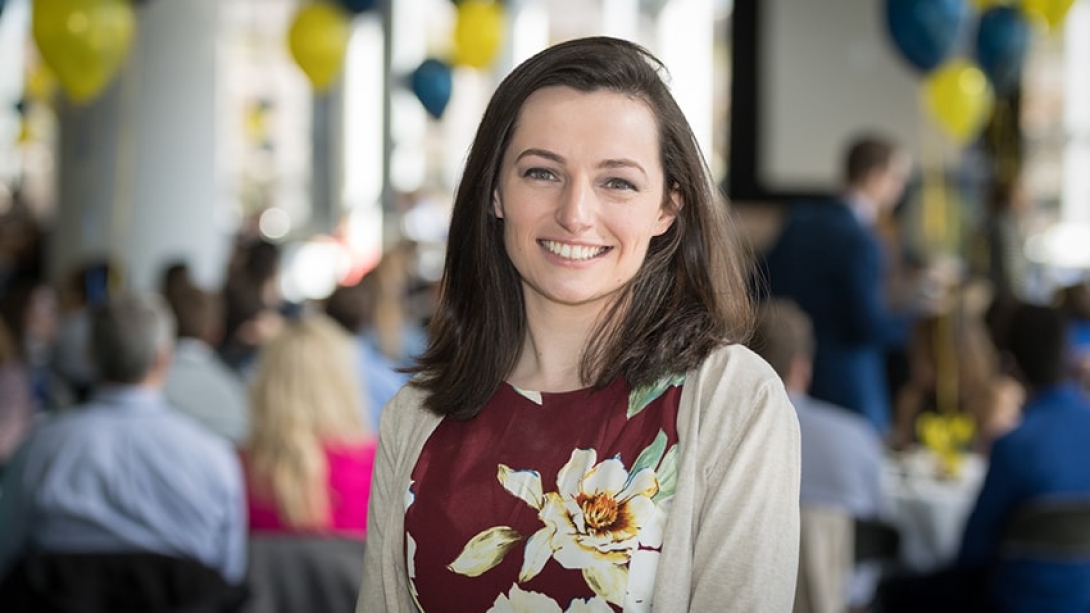
Choose your references carefully
Most residency programs require three or more letters of recommendation, and the references hold weight.
Students, then, should seek out mentors who know them best — and who have relevant ties to the intended specialty (each program should specify what backgrounds are preferred). Those people likely held supervisory roles during a candidate's rotations and subinternships.
"Find someone you have worked closely with who can really speak to your strength as a clinician and has observed you operating with a little more responsibility," Asamoah says.
But since attending physicians oversee many interns, a brief refresher can be helpful when making the request months or years later. Asamoah, for instance, forwarded his personal statement to his letter writers once they agreed to testify on his behalf.
SEE ALSO: 'Why I Became a Doctor': Michigan Medicine Physicians Share Their Stories
And while it's smart (and courteous) to inquire several months in advance, Chow suggests asking for letters even earlier.
"As soon as you finish with a clinical rotation and felt good about it, go ahead and ask the attending [physician] to write one," she says. "The experience with you is fresh in their mind. It's always easy to ask them to edit what they had written to include any new awards or projects or research, rather than asking them to recall something two years later."
Long-term mentors also can be ideal for assessing an applicant's growth and potential.
"Getting involved with research is a good way to develop relationships," says Lane, who sought out a faculty member who she had worked with since her M1 year to write a recommendation.
Keep your resume updated
For students with plenty on their plate, it can be easy to let new achievements go unrecorded. Adding new details to a CV as they occur helps reduce preparation time (and avoid omissions) when it comes to submitting that data on the ERAS.
"That way, you won't forget what you've done and accomplished," says Lane, noting that it's a good idea to have an academic advisor review the resume in advance. "Our counselors are really skilled in making sure that your resume looks great."

Explore a variety of healthcare news & stories by visiting the Health Lab home page for more articles.

Department of Communication at Michigan Medicine
Want top health & research news weekly? Sign up for Health Lab’s newsletters today!
